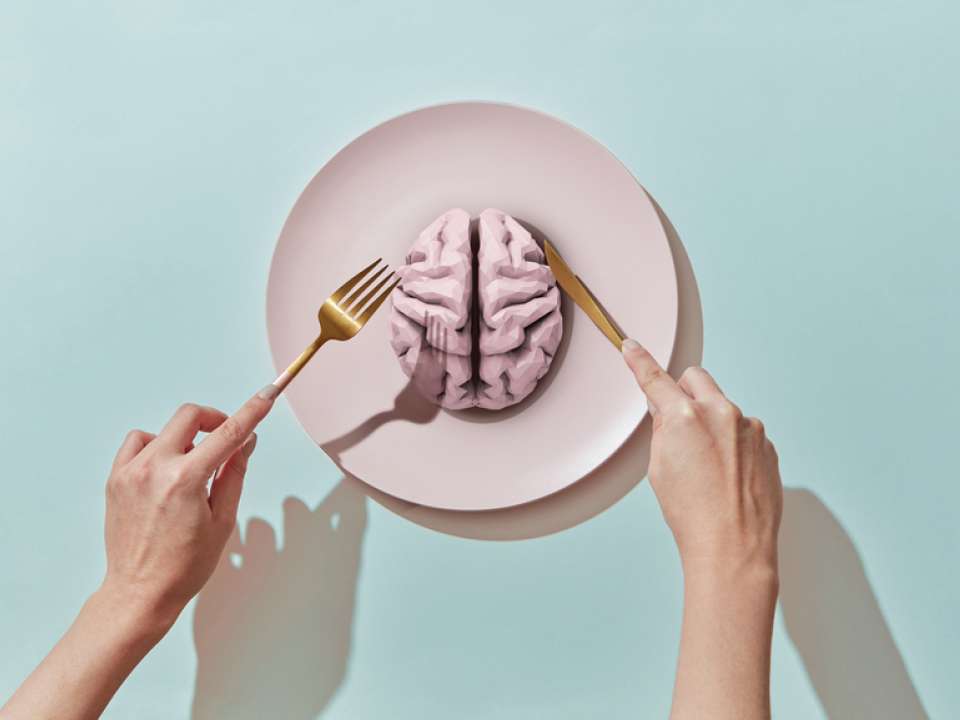
When it comes to getting pregnant, people will have lots of advice for you. One in six couples struggles with fertility and it can be a stressful process. Now, some of that advice might be questionable (what is this about standing on your head?), but some of it is worth listening to — like how paying attention to what you put into your body can help with fertility.
We checked in with Judy Simon, a registered dietitian nutritionist at the Nutrition Clinic at UW Medical Center – Roosevelt and co-author of “Getting to Baby: A Food-First Fertility Plan to Improve Your Odds and Shorten Your Time to Pregnancy,” to understand the connection between your favorite lunch fare and your sought-after bundle of joy.
What does nutrition have to do with fertility?
It’s important to prepare your body for pregnancy and ensure you have all the building blocks for healthy reproduction. One important thing to think about? Your eggs. Nope, not the scrambled kind, the ones that people assigned female at birth are born with. Women are born with all the eggs they’ll ever have. In the month before ovulation, the egg must mature in order to be ready for fertilization. During this time, a healthful diet can help provide the essential nutrients the egg needs for normal development.
"What you are eating at the time of conception can decrease your risk, during pregnancy, for adverse outcomes of pregnancy — things like preeclampsia, gestational diabetes,” says Simon. “It lays the foundation for a healthier pregnancy."
The same goes for men: It takes 70 to 80 days for sperm to mature. Often, the health of that sperm will reflect the health of the man during that time.
“Of course, we care about the health of the egg and sperm, but we also care about the health of the whole reproductive system,” explains Simon.
Plus, focusing on good nutrition can also help with certain conditions like polycystic ovary syndrome (PCOS) and endometriosis, which cause inflammation and can decrease fertility in some people.
"We can sometimes see how making positive changes in diet can help people with these conditions to ovulate if they're having irregular cycles,” says Simon.
What foods are good for fertility?
A plant-forward diet
The benefits of a plant forward diet (often called the Mediterranean Diet are well documented. So, it should come as no surprise that it’s a recommended approach if you’re trying to boost your fertility.
Of course, you don’t have to be a vegetarian or even a pescatarian to get pregnant; you should just think about integrating more fruits and vegetables, whole grains, beans and lentils into your life, because having a healthier gut microbiome, with the addition of more plant foods and fiber, can help with hormonal health and the immune system.
There’s also research that tofu and soy can be helpful for fertility, plus it’s a great source of protein and can help with managing chronic diseases like diabetes and metabolic syndrome.
Whole versus ultra-processed foods
Eating whole foods when you're trying to conceive is also key. That doesn’t mean you need to start milling the grain yourself, but just that you should choose nutrient-dense foods from original sources over ultra-processed foods. You also don’t need to avoid frozen foods; many frozen foods and even some pre-prepared foods can be great for your body.
Plenty of fish (Omega 3)
Several studies have shown that for couples trying to conceive, two servings of fish a week seems to shorten the time to conception, possibly because fish is high in Omega 3, an anti-inflammatory that helps reduce stress in the body.
“Fish is probably the most fertility-promoting meat, and it's a good source of protein,” says Simon. “Some studies say that more processed meats, and too much red meat, may not be supportive of fertility. So that’s not to say that you can't have it, but maybe have smaller portions or get grass-fed beef, which is better quality."
A variety of whole grains
When eating for fertility, Simon also recommends trying out different kinds of whole grains, like swapping thin noodles made from buckwheat flour or buckwheat and wheat flours for ramen noodles, or experimenting with quinoa or farro. Ancient grains are rich in minerals and fiber and can make you feel fuller than white rice or regular pasta.
Fertility-friendly fats for the win
Fertility-friendly fats are also essential — things like olives, avocados and extra-virgin olive oil.
“Those are all really nice fats that will help you absorb your fat-soluble vitamins,” explains Simon. “And they also help with hormone production.”
And of course, a fan favorite: yogurt — specifically those low in sugar. Not only is yogurt high in protein and contains probiotics, but also it can be used to spruce up dips and dressings in a healthy (and yummy) way.
Making your food fertility-friendly doesn’t have to be hard
It’s important to remember that you don’t need to totally revamp your diet to boost fertility — making the smallest changes can make a huge difference in your or your partner’s health. Take nuts, for example.
“There's been research showing that just the simple addition of a handful of almonds or mixed nuts, even if a male doesn’t even change anything else about his diet, can actually improve his health — and his sperm— over 14 weeks,” says Simon.
That’s thanks to magnesium, zinc and selenium, which contribute to stronger swimmers.
You also don’t have to eat strictly a Mediterranean diet to be healthy. You can eat food from all over the world — whether that’s Asia, Africa, South America — that can be healthy and have plenty of plant-based options.
Finally, make sure to take the nutrition advice that you get from social media with a grain of salt. Many influencers will try to tell you that the no dairy and no gluten diets are always the healthiest option.
“Unless they have celiac disease, people don’t need to do that. Whole grains have so many nutrients that promote fertility and healthy pregnancy,” explains Simon. “And there are people that are lactose intolerant, and that is totally legit, but there has been some research that found that for women with ovulatory disorders like PCOS, having one full-fat dairy a day was actually helpful for fertility.”
In the end, it comes down to your own fertility journey and how you want to approach it.
“I have patients that have had a miscarriage and say, ‘Maybe I didn't follow the rules close enough.’ And there really aren't rules,” says Simon. “Just having that healthy foundation can be fertility promoting, and taking care of your health so that you have the best odds of having a healthy pregnancy.”
She also encourages you to reach out to your healthcare team if you’re struggling to conceive or if you have questions. You can also contact Women's Health Care Center at UW Medical Center — Roosevelt and Reproductive Care at UW Medical Center — Roosevelt for support.

 Healthy ideas for your inbox
Healthy ideas for your inbox





